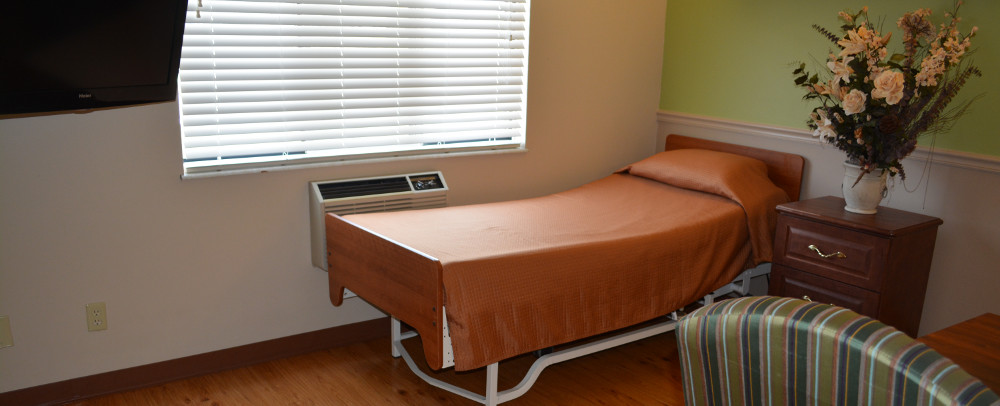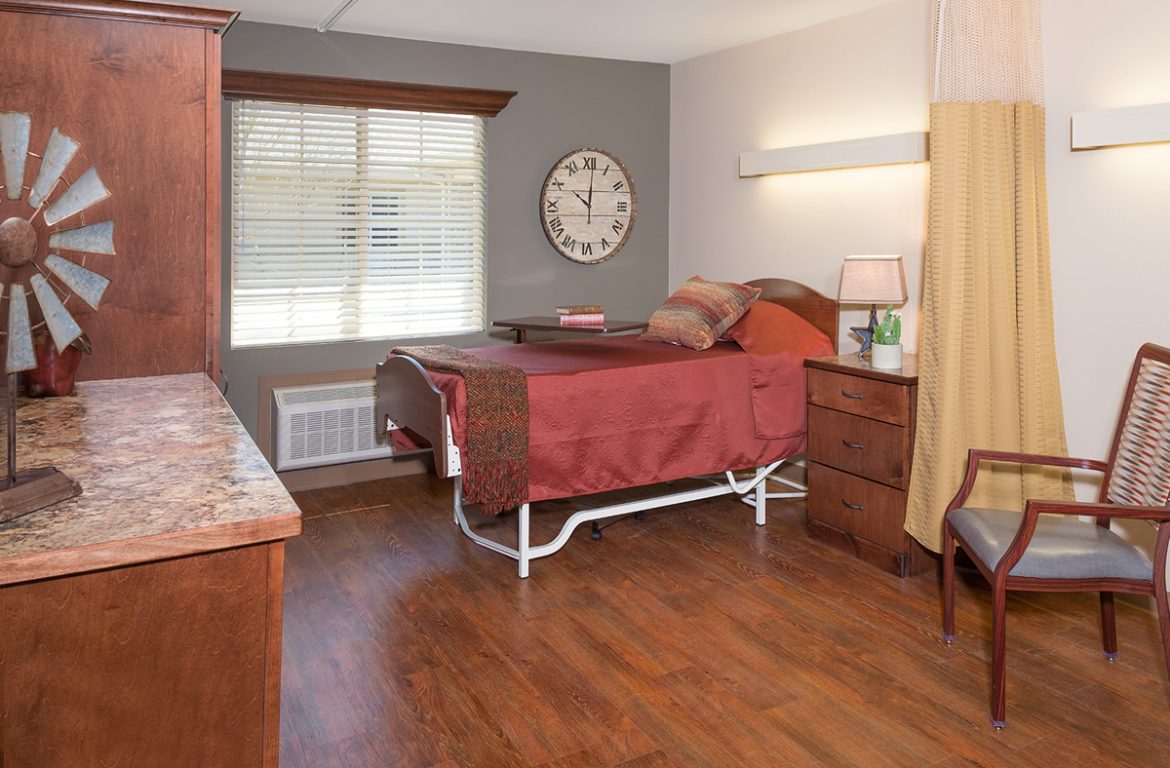Table of Content
Sometimes, it’s the best way to keep someone safe, especially if their health or mental status has deteriorated. Nursing homes must ensure that residents’ rights to privacy, respect, self-determination, and more are upheld. Any violation of rights must be investigated and may involve the nursing home’s ombudsman, who serves as an advocate for all residents. Memory care communities are specially designed living environments for people with Alzheimer's or other dementias. You can expect that staff members have extra training to help people with memory loss.
If you like your doctor, ask if they provide services for any local nursing homes. Enter a Medicare-approved facility within 30 days of qualifying hospital stay. You may also consider asking family and friends for their recommendations. Word of mouth is an excellent way to find an agency, group, or individual who will fit into your daily life and provide the care your loved one needs. Bear in mind that different states have different requirements for certifications, referrals, and background checks.
How Does Memory Care Compare to Other Senior Care Options?
When one stays in a nursing home for a short time, the cost of the nursing home will go down. Compared to those who must live out their lives at a nursing home, the short term option may be the most cost effective. This has a lot to do with the fact that skilled nursing services are required at nursing homes. As a result, the facilities have to spend a lot of money to staff all of the personnel. There are rooms of all sizes and occupancies available, similar to that of a hotel. Location of the nursing home also comes into account in regards to overall cost.

In that case, personal care services and help with ADLs are a deductible medical expense. Home care is a category of professional support services designed to help seniors live safely at home. With home care, a professional caregiver or multiple different caregivers come into a senior's home or their loved one's home to provide whatever help is needed. Is caring for your aging parent or loved one on your own becoming more difficult? If you're looking for a helping hand, home care is an option many families choose to make aging in place safer, easier, and more enjoyable for seniors. Below, we'll provide an overview of home care services, how to pay for home care, and more to help you decide if home care is right for your loved one.
How is the cost of senior home care calculated?
The best home care agencies have extensive orientations for caregivers and provide continuing education. One essential part of caregiving is effectively handling emergencies, so be sure to ask if emergency training is included in employee orientation. (Are employees trained in fire safety? Do they know the Heimlich maneuver and CPR?) Continuing education lets caregivers build their healthcare skill sets and stay up-to-date with best practices in home care. How much you'll pay depends on how much assistance the person will need.
When coordinating care through a home care agency, consider asking questions like what licensing and certifications the company requires and what training caregivers undergo. If your loved one has a specific need — like help with transfers — let the agency know so that your loved one receives care from someone with specialized expertise. The median cost of non-sleeping visits, meaning a caregiver is awake and consistently supervising a senior, is $17,280 per month. This includes 720 hours of continuous care provided by multiple aides.
Family Caregiving
Nursing homes are compared to assisted living communities in that both care for those who need residential health care outside of the home. The difference between a nursing home and assisted living is that in a nursing home, the patients require 24 hour care and for extended periods of time. Those in a nursing home are less independent, if at all, and require constant watch and safety measures in place. Many people in nursing homes are bed ridden and immobile, thereby requiring help in every aspect of personal care. While nursing homes may be called skilled nursing facilities or convalescent homes, the level of care and services may differ.
Assisted living communities will not have the highly-trained staff and specialized design and programming that memory care communities offer. Nursing homes offer a more intensive level of medical care than any other type of senior living. People living in nursing homes are typically less able to live independently or care for themselves than people who can live in an assisted living facility, and the available services reflect this. But the high-level of care offered at nursing homes is typically more focused on medical care rather than memory care. Those living with memory impairment may not be able to receive the personalized attention and cognitive stimulation that they need in a nursing home setting. The biggest differences between assisted living care and in-home care are the most obvious- in assisted living, residents live in a community of other adults receiving care, while in-home care takes place in an individual home.
Patients must be under a doctor's care, and the doctor must issue a plan of care that certifies the patient needs one or more of the services listed above. The doctor and the home health team review and recertify the plan of care at least once every 60 days. Seniors who need help paying for ongoing nursing home care may qualify for Medicaid. The Program of All-Inclusive Care for the Elderly is another alternative available in select geographic areas. Medigap supplements can cover daily coinsurance rates for days 21 through 100, and standalone long-term care insurance can provide more comprehensive benefits.

For example, each state sets its own income limit to determine if you are eligible for Medicaid. Original Medicare only pays for nursing home care up to 100 days maximum . Some Medicare Advantage plans may also offer partial coverage, but only if the nursing home contracts with that plan. If your loved one is enrolled in Medicaid , it can cover the full cost of care from a Medicaid-participating home healthcare agency. For people who have both Medicare and Medicaid, the Medicaid program might cover some home healthcare after Medicare coverage stops.
For more information, click here to read more about our skilled nursing service. Obeying doctor’s orders and moving to a nursing home can be a difficult time for most and counseling services should be offered to everyone involved. Also involved should be social service agencies and support groups to ensure the mental health and physical health remain in the family and with the resident. Ensuring you have doctor’s orders and proper documentation should allow a smooth transition into the life of a nursing home resident and also ease the financial burden of the final costs.
Unlike other Rochester senior care communities, our relaxing community areas allow you to entertain both family and friends. The beautiful Chapel of the Good Shepherd is ideal for reflection, meditation and religious services. The main difference between assisted living and a nursing home is that nursing homes provide skilled medical care and rehabilitation services, while assisted living does not offer skilled medical care. Assisted living is intended for people who do not need this skilled care, but do need some assistance with personal care and the activities of daily living. Both assisted living and nursing homes are a type of long-term residential care for seniors.
Previous employers and other references might confirm your impressions of the individual, or they might share “red flags” that you missed. When you speak with other employers, ask about the worker’s punctuality and work quality. Before meeting a job applicant in person, interview him or her by phone. For safety’s sake, work with agencies that show proof of up-to-date criminal background checks. If you are the site owner , please whitelist your IP or if you think this block is an error please open a support ticket and make sure to include the block details , so we can assist you in troubleshooting the issue.

Someone is a good candidate for assisted living when they need help with the basic activities of daily living , or expects to need that help in the near future. Other traits that indicate that it’s time for assisted living include difficulty maintaining one’s home or preparing meals, inability to safely drive, and increasing social isolation and loneliness. Assisted living communities today are not the retirement homes of yesteryear.
That being said, some seniors will be better suited for a different senior living option. Below, we explain how assisted living compares to other common senior living options. Home health agencies provide skilled medical care workers who work in your loved one’s home.



No comments:
Post a Comment